Text
What is sockpuppeting?
youtube
4 notes
·
View notes
Text
How clout rules fandoms (video essay)
youtube
0 notes
Text
Thoughts on BTS at the White House
youtube
0 notes
Text
(TRAILER) How clout rules fandoms
The video essay "How clout rules fandoms" will be released on June 5th at 4 PM PST.
0 notes
Text

2021 Fandom Collage
#fandom#sherlock#my hero academia#dreamwastaken#warrior cats#pokemon#corpsehusband#star wars#harry potter#twilight#sykkuno#supernatural#bts#rwby#my little pony#overwatch#marvel#webtoons#anime#kpop#manga#steven universe#cartoons#teen wolf#avatar the last airbender#homestuck#dc#haikyū!!#blackpink#she ra and the princesses of power
6 notes
·
View notes
Text
Experiences at SoFi Stadium (BTS PTD Concert Day 1) #SoFiDoBetter
youtube
#bts#bts army#bangtan soneyondan#video essay#m thoughts#sofidobetter#sofistadium#sofi#bts concerts#Youtube
1 note
·
View note
Text
The Truth Behind Unpopular K-pop Opinions (video essay transcript)
youtube
[Voices voicing unpopular K-pop opinions]
[Unpopular k-pop opinions in robot voices] x3
An unpopular K-pop opinion is made up of three things:
An opinion
K-pop
And asking: Is it unpopular?
If a statement checks these three boxes, congratulations you have an unpopular K-pop opinion.
They started off being posted on anonymous confession blogs and forums. Some of the oldest Tumblr blogs and posts for these opinions are from 2011 to 2012, documenting over a decade of K-pop opinions. Unpopular opinions and confession blogs aren’t anything new. It's been a practice in online spaces for a long time for people to anonymously share opinions that could potentially be problematic or offensive towards others. Sometimes the opinions are completely neutral. Websites like Tumblr even have these anonymous options built into their websites with anon asks. It’s an opinion with no consequences, a statement for people to debate and discuss.
Today, they have spread to Twitter threads and YouTube videos. And they’re super popular. Actually, popular isn’t the right word. They’re super controversial. They’re provoking—not necessarily thought provoking—just provoking. They garner hundreds of thousands of views, if not millions, on YouTube. Then for Twitter threads, these opinions are capable of starting fanwars and conversation with possibly thousands of quote retweets.
Many fan accounts use them to stir up views and engagement, having thumbnails and threads that feature controversial topics. At times, these unpopular opinions aren’t actually unpopular. Unpopular becomes synonymous with negative where these pieces of fan content and engagement contain negative opinions to discuss, not necessarily ones that are unpopular and go against the majority opinion. For these opinions, it is also difficult to actually determine if an opinion is unpopular because K-pop fandoms are so large and diverse. In a way, these opinions are incorrectly labeled as unpopular. Instead, they are controversial. These are controversial K-pop opinions. For the sake of simplicity though, I will continue to refer to them as unpopular for the remainder of this video. Unpopular K-pop opinions are our gateway into conversation in K-pop spaces.
There’s many pros to these opinions.
They provide a place for people to express an opinion opposing the majority opinion. The majority opinion is very powerful because it leads to agreement and consensus. Unpopular opinions shake things up. They go against the majority. They cause people to question their biases and further research for reasons to defend their own personal opinion. That opposition against the majority can create conversation, leading to fleshing out people’s thoughts on their stances and deepening the understanding behind the topic that those opinions are based on.
Unpopular opinions can also bring light to issues. It provides a platform to be honest. At times, people don’t want to challenge the majority opinion in fear of being witch hunted and dogpiled on for pointing out an issue. For example, people in the fandom space might be using a potentially offensive term. The anonymity of unpopular opinions can provide a spark to a conversation where alternatives to a term can be found and the community can educate themselves further.
One more reason is that unpopular opinion Twitter threads, YouTube videos, blogs, and forums all provide avenues for people with similar opinions to find each other. People can build relationships with each other and create long, lasting friendships. It enhances the community experience of a fandom, providing a sense of commaderite between fans.
There’s also many cons to these opinions and platforms though.
These opinions are essentially gossip. Gossip has a thrill to it. It feels good, but it can be harmful to others. At times, unpopular opinions can begin to cross personal boundaries where they discuss the mental health, sexuality, political opinions, and other invasive topics of K-pop idols and the K-pop industry. Many people in K-pop communities find unpopular opinions invasive of the privacy of idols and disrespectful of their personal lives. Unpopular opinion accounts and blogs encourage people to speculate and possibly spread mis- or dis-information around the online space. This can harm the perception of a celebrity, causing discourse within the fandom.
Unpopular K-pop opinions can make people feel like they’re right for having the opinion they have too. These opinions are no longer viewed as opinions, but as facts for many people. They confirm biases and can create echo chambers where people say the same thing again and again. There’s no deeper thinking, only confirmation bias and ostracization of people who disagree.
While these anonymous platforms can be used to shed light on issues, they can also be abused to say things that are genuinely problematic and offensive without consequences. In some instances, unpopular opinion blogs have been automated where opinions are not reviewed by an actual person or a moderator before being posted. This can lead to opinions being posted that have slurs in them and viewpoints promoting harm to others.
Unpopular K-pop opinions exist in a limbo where there is both good and bad to them. They will always exist for a hot take rant or a structured essay. Although, there’s something shifting and changing in fandom spaces that has changed the view on them in recent years. There’s a new truth to what these opinions represent and why there’s so much push back against them now in particular. Let’s break down the truth behind unpopular K-pop opinions.
The current state of fandom is not ideal for these opinions to exist in. In the past, fandoms have been largely disconnected from each other. Instead of a fandom being one, cohesive group of people that coexists in one space, fandoms look more like this:
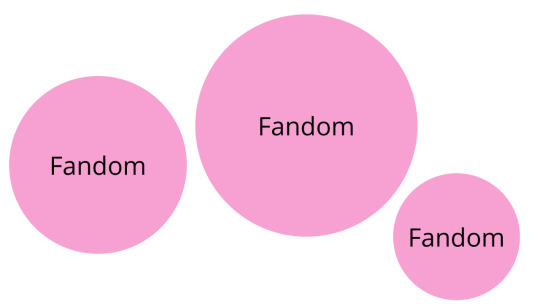
Online fandoms are separated by websites. There is overlap of users, but fans are usually mostly active on one website or platform for fannish activities. This would be called their main platform. Then, fans are further divided on websites by their interests. For instance, if someone is a fanartist, they’re usually around other fanartists because it’s the same interest. Overlap is more common with interests where someone can be a fanartist, but also a fanfic author. Someone can be into critical analysis of a TV show, but also be a merch collector. No one is ever in fandom for only one thing.
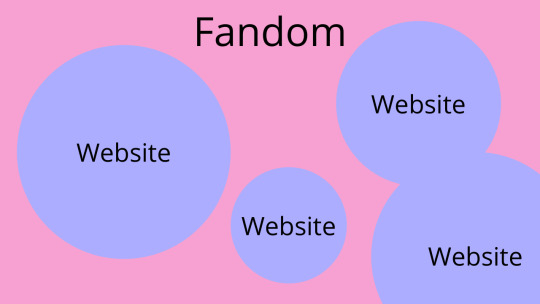
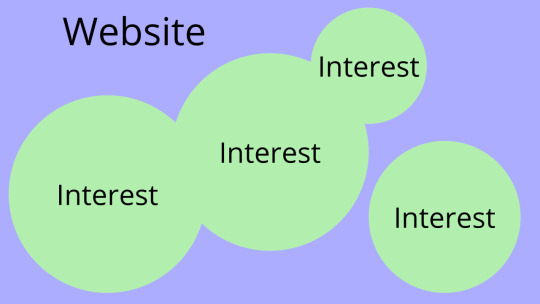
This is how fandom is usually organized. It differs from fandom to fandom, but this is the bare system of organization. Now, take this organization we’ve discussed already and increase its scale and intensity significantly. That’s what fandoms look like now. Instead of a disconnect between groups though, everything melts together. Cross-platform discourse, especially between Tumblr and Twitter, has become increasingly more common along with cross-interest discourse. Many spaces such as fanart spaces that would have their own discourse and are disconnected from the main fandom space, now meld into the main fandom space anyway. Discourse and discussion is not divided depending on what your interests are anymore, everyone is partaking in it whether they actually care about the interest or not.
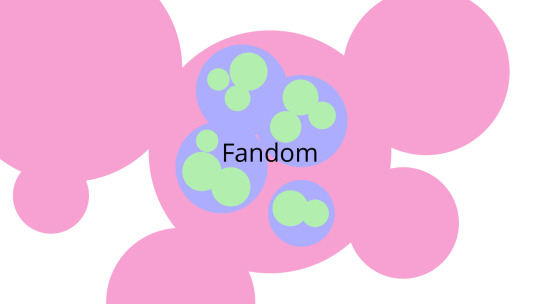

In recent years, there has been an exponential increase in people joining online fandom spaces. Many old, already established fandoms and franchises such as Harry Potter and Star Wars had reboots. This allowed a wave of new fandoms to learn from them then build themselves. Add on an increase in internet usage over the years with the appearance of new media to support these fandoms and you have a much larger fandom subculture. Where a majority of fandoms used to be smaller, more tight knit, fandoms are increasingly becoming humongous, interconnected online communities.
And these communities don’t only exist online. In real life, we can see this fandom growth with the expansion of fan events. We see fandoms represented in concerts, passionately singing along to their favorite artist’s song. We see them in conventions, cosplaying and going from panel to panel to meet other fans. We see them in meet and greets, competitions, tours, and so much more. Fandom is bigger than ever, especially due to the COVID-19 pandemic. This has led to millions of people having more free time and spending that time getting into fandom and learning fan culture.
More people means more problems though. Fandoms have never had a good track record of trusting each other in the first place, but more people leads to more mistrust. Stances and opinions in fandoms become more complex. There’s a necessity to clarify and thoroughly explain oneself in order to not get “cancelled” for failing to acknowledge something. You can’t just say anything because people that don’t know you will assume you said something else from what you did say.
In online fandom spaces, people assume intent and decipher posts in order to ensure the original poster’s morals are aligned with their own. Many look to not take the post at face value and look further to ensure the post they’re sharing has an author they agree with. This desire to know the original poster or op’s original intentions pushes people to fill in the blanks with assumptions.
Fandoms begin to generalize and hard-line opinions to compensate because taking the time to learn hundreds of thousands of people’s full, thorough opinions on increasingly complex and multifaceted topics has become more difficult. It’s easier and takes less mental strain and energy to assume intention than actually learn it.
This trend of an increasing interest and population in fandom culture has also led to other trends and changes in how fandoms protect themselves as opposition and complexity in opinion grows.
The fandom police or fanpol are a group of people within a fandom who engage in policing. Policing is to regulate, control, or keep people in order. In fandom history’s past, fanpol have existed with smaller groups trying to bring their version of order to a fandom. Usually these fanpol groups censor other people in the fandom by dogpiling, using disinformation in expose threads, and mass reporting. They’re not favorable groups of people, being unpleasant and downright vile in some cases where they dox and cyber stalk people who disagree with them. Fanpol has become synonymous with fandom bullies.
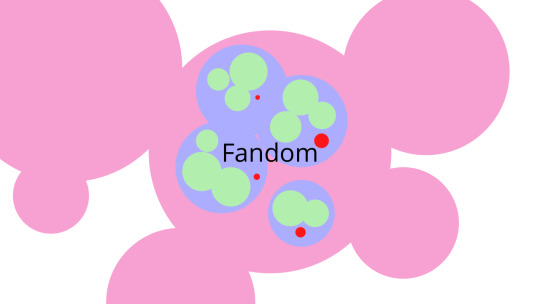

In today’s current fandom era, these smaller fanpol groups have expanded to where they’re not small, specialized groups anymore. These censoring and policing ideologies have become ingrained in the majority of a fandom or large, overwhelming groups of the fandom. It’s no longer just policing, it’s an entire change in how fans interact with each other. It’s an ideological change. Fandoms essentially police themselves now, no small group of people needed.
The truth behind unpopular K-pop opinions is that they are subject to a changing fandom environment.
Opposition is seen as hatred with hidden agendas to defame and slander. Fandoms want to protect themselves. They’ve begun to police each other on a large scale to do so instead of community building and actually knowing each other. Fandoms have become hypersensitive to opposition because more often than not, that opposition turns into hatred, harassment, and eventually a person who has awful, malicious intentions gains a platform and can’t be taken down. That hostility is a safety measure, a precaution that compensates for a fandom’s failure to bond with each other. It’s not necessarily their fault that they have failed though.
Unpopular opinions have always existed, but even though they’re unpopular they’ve become popular to do. In the face of growing hostility to opposition, the anonymous platform of unpopular K-pop opinions allows for expression. It allows for opposition to exist that isn’t malicious. Sometimes people just don’t like things that are popular or want to criticize something properly without fear of being sent death threats or being constantly harassed for that criticism. Mild unpopular opinions and criticism cannot exist in this current environment.
We are in a state of fandom where mild disagreement is treated the same as downright hatred. It’s faced with hostility and aggression for the reasons I specified earlier. Eventually, we’ll reach a state where mild agreement is treated the same as downright hatred. Where anything that isn’t enthusiastic, gleamingly positive support and showers of love are seen as malicious and attacks against a celebrity or interest.
And it’s so complicated. On one hand, we want to let these milder opinions exist and allow people to express how they truly feel. However, there’s more often than not, hidden agendas behind these milder opinions. There’s agendas to hurt and harm fans and idols.
The truth behind unpopular K-pop opinions is that they exist and have become increasingly more common to express because of this conflict. Fandoms do not know each other anymore and aren’t focused on community building, leading to a spike in hostility to opposition to protect themselves. K-pop fandoms don’t actually care about K-pop anymore in the way they’re supposed to care about it. They should care about their groups and want to build a fandom that loves that group. They’re not doing that though, so when they’re faced with harm from outsiders they don’t know how to combat it as a fandom. K-pop fandoms don’t care about each other. They care about clout. Unpopular K-pop opinions are used to gain their clout through rage clicks and clickbait. That’s why unpopular K-pop opinions have become popular. That’s the truth.
I was originally going to end this video right here. However, I don’t think I can end on such a depressing and hopeless note. If you look at my channel, I haven’t uploaded anything for weeks (months) because I’ve been consumed trying to figure out how to end this without sounding defeatist. I’ve been thinking about this for a long time.
So, here goes:

K-pop fandoms can break away from this fandom state where truth seems almost impossible to obtain and clout is seen as king by just choosing to be true to themselves. Be true to their goal as K-pop fans. Their goal is to love their idols, love the thing that brought them into the fandom in the first place. That’s the goal of every fandom. You’re in a fandom because you want to talk about things and enjoy something with other people.
It’s about appreciating the music, content, and interaction groups give fans. That’s why streaming and voting is so amplified to K-pop stans. They stream and vote to show love to their groups because their individual words and actions might never reach them. It’s how the fandom is capable of expressing themselves en masse to their favorite group so that way their favorite group can feel the love they feel for them.
And you can express that love in different ways too. You don’t need to vote and stream, that’s just one of the unique and direct options K-pop stans have. Fanartists express their love by creating art. Fanfiction writers write fanfiction. Editors make edits. If you’re not a creative, simply listening to the music, reading the lyrics, and engaging with others about the music and content is a way to express your love.
The truth behind unpopular K-pop opinions doesn’t need to be the truth anymore. We can change the fandom state by choosing to be ourselves. We can build a community and bond. We can protect our fandom spaces from malicious people and trust each other. You and I are K-pop stans, fans, whatever you want to call it, because we love our groups.
And if you’re just a random person watching this video, you can be in on this too. I hope you’re feeling what I’m feeling right now. I hope you’re feeling it, okay? We love them for who they are, okay? That is our truth and we should live it.
[Social Media]
Twitter
Medium
#fandom#fandom meta#video essay#fandom video essay#unpopular kpop opinions#youtube#meta essay#fanpol#fanlore#otw#organization of transformative works#kpop#kpop fandoms#stan twitter#twitter#tumblr#fanfiction#fanart#m thoughts#Youtube
1 note
·
View note
Text
🌟New Video! Find out what Dope established BTS and ARMY as in this new video essay! 👀 youtu.be/M28mjqzvaY4
#m thoughts#youtube#bts#army#video essay#fandom meta#fandom history#vine#tumblr history#bts dna#bts dope#fandom video essay#fandom meta essay#meta essay
0 notes
Text
Video Essay: Changes in Fanspeak (Fandom Slang and Language)
youtube
New video about changes in fanspeak over time. I'm officially back from hiatus and excited to share some interesting videos with you all.
#m thoughts#video essay#youtube#fandom meta#fanspeak#meta essay#fandom#fandom slang#fandom language#fandom vocabulary#bts#army#mcyt#vld#steven universe#Youtube
1 note
·
View note
Text
Is BTS ARMY the biggest fandom in the world? (Video Essay Trailer)
1 note
·
View note
Text
The Aesthetics of BTS Dynamite
youtube
2 notes
·
View notes